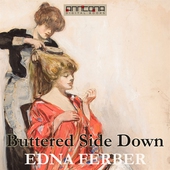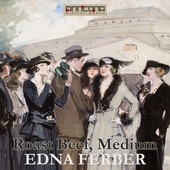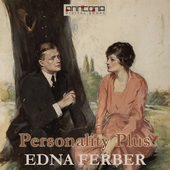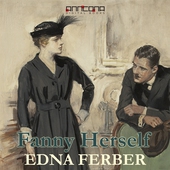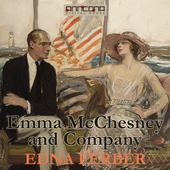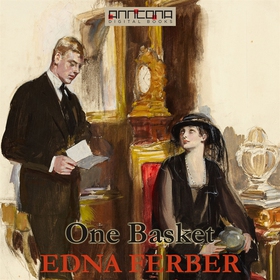
Lägg till önskelistan
Gratis smakprov
- Spara till biblioteket
- Lyssna på smakprov
One Basket ljudbok
Pris
65 kr
One Basket is a sparkling collection of 7 short stories by Edna Ferber and includes some that are considered her all time best like The Woman Who Tried To be Good and The Maternal Feminine.
Writing for and about women, Edna Ferber touches the very heart and soul of what it means to be human; to make good choices and bad; to be weak and strong.
The stories included in One Basket are:
- The woman who tried to be good (1913)
- The gay old dog (1917)
- That's marriage (1917)
- Farmer in ...
Ljudbok
65 kr
Pris
E-Bok
19 kr
Pris
Förlag
Anncona Media
Utgiven
27 November 2015
Längd
5:06
Genrer
Noveller, Skönlitteratur
Språk
English
Format
mp3
Kopieringsskydd
Vattenmärkt
ISBN
9789176055373
One Basket is a sparkling collection of 7 short stories by Edna Ferber and includes some that are considered her all time best like The Woman Who Tried To be Good and The Maternal Feminine.
Writing for and about women, Edna Ferber touches the very heart and soul of what it means to be human; to make good choices and bad; to be weak and strong.
The stories included in One Basket are:
- The woman who tried to be good (1913)
- The gay old dog (1917)
- That's marriage (1917)
- Farmer in the dell (1919)
- Un morso doo pang (1919)
- Long distance (1919)
- The maternal feminine. (1919)
Edna Ferber (1885-1968) was an American novelist, short story writer and playwright. Her novels were especially popular and included the Pulitzer Prize-winning So Big (1924), Show Boat (1926; made into the celebrated 1927 musical), Cimarron (1929; made into the 1931 film which won the Academy Award for Best Picture), and Giant (1952; made into the 1956 Hollywood movie).
Ferber's novels generally featured strong female protagonists, along with a rich and diverse collection of supporting characters. She usually highlighted at least one strong secondary character who faced discrimination ethnically or for other reasons; through this technique, Ferber demonstrated her belief that people are people and that the not-so-pretty people have the best character.

